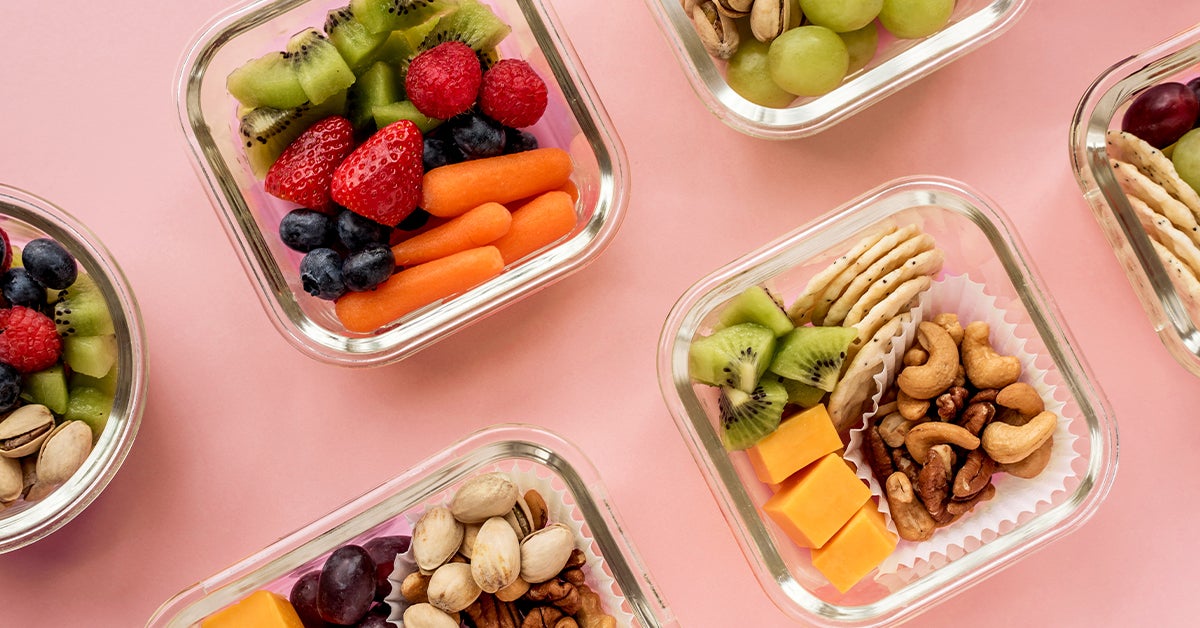Here’s the good news: you don’t have to restrict yourself to vegetables, fruits and whole grains when it comes to eating healthy. You can enjoy plenty of other nutrition and diet foods that will help you achieve optimal health. Furthermore, choosing foods in moderation is key to remaining healthy.
Eating nutrient-dense foods such as fruits and vegetables doesn’t mean they need to be eaten in abundance. A balance of different types of foods is just as beneficial as enjoying a single type of food. But that’s not all.
You can also take advantage of many nutritious foods that are often overlooked or underutilized but are a staple in many diets worldwide for their nutritional value. Some examples include eggs, poultry, fish and low-fat or non-reduced dairy products such as milk, yoghurt, cheese and butter from grass-fed cows.

Eggs
Eggs are a great source of protein, potassium and choline. They’re also a good source of zinc and are rich in beta-cryptoxanthin. Beta-cryptoxanthin is a carotenoid pigment found in plants like purple carrots and red beets. It’s been found to be effective in helping reduce LDL (“bad”) cholesterol levels in the blood and triglycerides, a type of fat found in the blood.
It’s important to note that while beta-cryptoxanthin is found in human foods like eggs, carrots, tomatoes and beets, it’s also found in animals like pigs and cows, so you need to be careful about eating huge amounts of these foods without first making sure you’re getting enough nutrients from the rest of your diet.
Poultry
Poultry is an excellent source of high-quality protein and is very low in fat. Other nutrients found in poultry include Vitamin B6, Biotin, Folate, Vitamin A and Selenium.
Vitamin B6 is important for energy metabolism and the metabolism of amino acids, which are the building blocks of protein. Vitamin A is important for good vision and immune function. Selenium is important for thyroid health and the metabolism of carbohydrates.
Fish
Fish is an excellent source of omega-3 fatty acids and contains no cholesterol. Studies have shown that a diet high in omega-3 fatty acids can lower blood pressure, decrease the risk of heart disease and improve cholesterol levels.
Fish is a good source of protein and vitamins B3 (niacin), B5 (pantothenic acid) and B6. Vitamin B3 is important for the metabolism of amino acids, metabolism of lipids and protein metabolism. B5 is important for the metabolism of carbohydrates and for reducing high blood levels of cholesterol. B6 is important for the metabolism of amino acids, the metabolism of glucose and the reduction of inflammation.

Lean Beef and Bison
Lean beef and bison are high in protein, contain very little fat and are low in cholesterol. Lean beef is low in saturated fat and is rich in vitamins A, B12 and E.
Vitamin A is important for healthy eyesight, the metabolism of fat and the metabolism of carbohydrates. Vitamin B12 is important for the metabolism of amino acids and the metabolism of energy. Vitamin E is an antioxidant that can help improve heart health. Beef is also rich in minerals that support bone health, such as calcium, phosphorus and potassium and is a good source of zinc.
Good Grains: How to eat healthy bread, pasta and rice
Good grains like wheat, barley, spelt and oats are rich in nutrients and are a great foundation for a healthy eating plan. They provide the fibre that helps prevent constipation and are rich in B vitamins and minerals, including manganese, which plays a significant role in metabolism.
Wheat is rich in vitamins B1 (thiamin), B2 (riboflavin), B6, niacin and minerals such as iron, zinc and manganese. Spelt is a type of wheat that is believed to be one of the first cultivated grains. Oats are rich in minerals, vitamins and fibre, as well as being gluten-free, which makes them suitable for people with celiac disease or allergies.
Healthy Fats: Which ones are best?
Healthy fats play an important role in a healthy diet. They provide energy, promote good health and help the body absorb certain vitamins and minerals.
Healthy fats include oils such as olive oil, fish oils, flaxseed oil, nuts and avocados. Healthy fats are essential for the body and help keep cholesterol levels normal, support heart health and maintain brain function. When choosing which fats to consume, it’s important to keep in mind what foods they come from. Healthy fats are found in plant-based foods such as olive oil, nuts and seeds. Healthy animal fats are found in fatty fish such as salmon, mackerel and tuna.

Nuts and Seeds
Nuts and seeds are high in protein, vitamins and minerals. They are an excellent source of monosaturated fats, which are considered to be good.
They are especially rich in plant-based nutrients, including vitamins E and A, selenium and minerals such as magnesium, manganese and molybdenum. Many people are aware of the benefits of nuts and seeds, but may not be consuming them regularly in the right amounts. To reap the benefits of these foods, eat them in moderation, preferably as part of a balanced diet.
Nutrition and diet: Conclusion
Nutrition and diet are huge topics, but the good news is that you can eat healthily, get all the nutrients you need, and lose weight if you know what to eat. To start, choose nutrient-dense foods such as fruits and vegetables, whole grains and lean protein.
Then, make sure you eat enough fibre, protein and healthy fats. It’s very important to get all essential nutrients from food since supplements often aren’t regulated and could have harmful amounts of ingredients. But by following the tips above, you’ll be on the right track to a healthy, balanced diet.























